Freedom's Hallowed Light
-
Ships in 1 to 2 weeks
Details
Description
SKU: CF.BL1224
Composed by Mark Patterson. 12 pages. Duration 1 minute, 54 seconds. BriLee Music #BL1224. Published by BriLee Music (CF.BL1224).UPC: 672405010764. Key: Eb major. English. Excerpts from The North Star by James Monroe Whitfield (1822-1871) alt., with add. lyrics, MP.
The text for Freedom's Hallowed Light was inspired by and quotes excerpts from the poem The North Star by James Monroe Whitfield (1822-1871). Whitfield was an African American poet, born in New Hampshire to a father who had escaped slavery and a mother whose parents had been enslaved. Whitfield was an abolitionist, and his writing served as a way to address the injustices of slavery and the difficulties faced by both enslaved and free African-Americans in the U.S. As an adult, Whitfield worked as a barber in Buffalo, NY, and through his work met Frederick Douglass, who recognized Whitfield's gift for writing poetry. In 1853 Whitfield published a volume of poetry titled America and other Poems. This musical adaptation seeks to connect both singer and audience with the fugitive that is at the center of Whitfield's poem and personalizes their quest for freedom through the addition of the first-person perspective. The piece should be sung with strong conviction and contagious energy, shining light and hope on all who have struggled or continue to struggle for freedom and equality.
The text for Freedom's Hallowed Light was inspired by and quotes excerpts from the poem The North Star by James Monroe Whitfield (1822-1871). Whitfield was an African American poet, born in New Hampshire to a father who had escaped slavery and a mother whose parents had been enslaved. Whitfield was an abolitionist, and his writing served as a way to address the injustices of slavery and the difficulties faced by both enslaved and free African-Americans in the U.S.As an adult, Whitfield worked as a barber in Buffalo, NY, and through his work met Frederick Douglass, who recognized Whitfield's gift for writing poetry. In 1853 Whitfield published a volume of poetry titled America and other Poems. This musical adaptation seeks to connect both singer and audience with the fugitive that is at the center of Whitfield's poem and personalizes their quest for freedom through the addition of the first-person perspective. The piece should be sung with strong conviction and contagious energy, shining light and hope on all who have struggled or continue to struggle for freedom and equality.
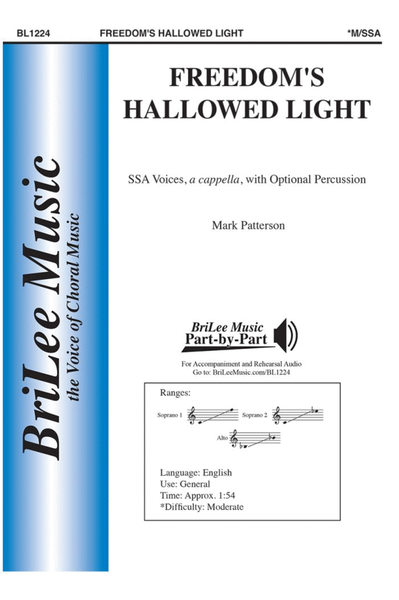
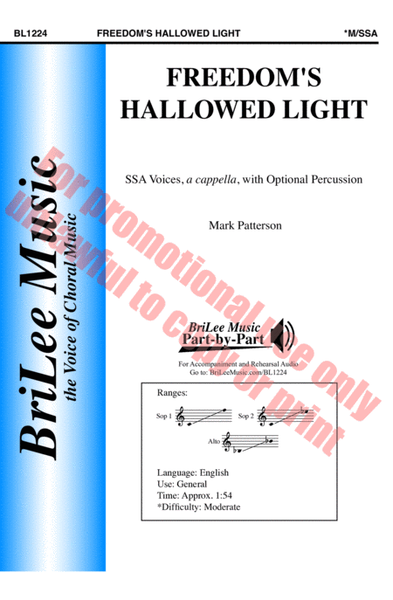
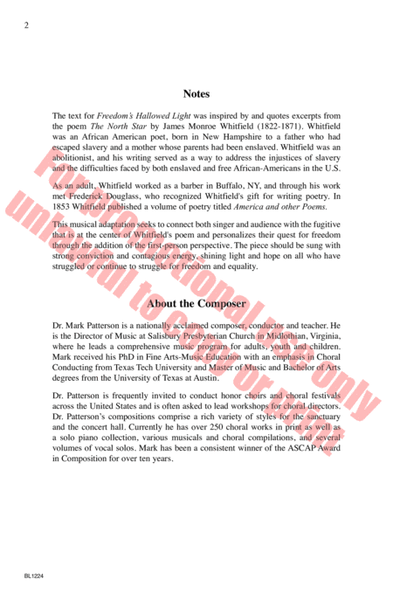
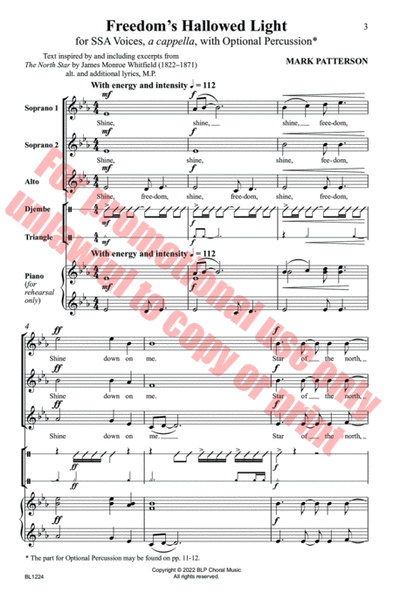
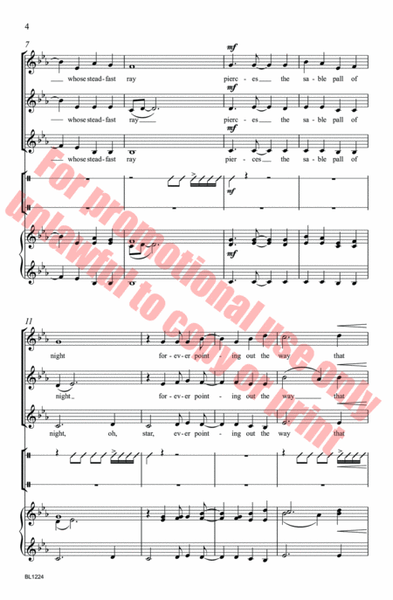
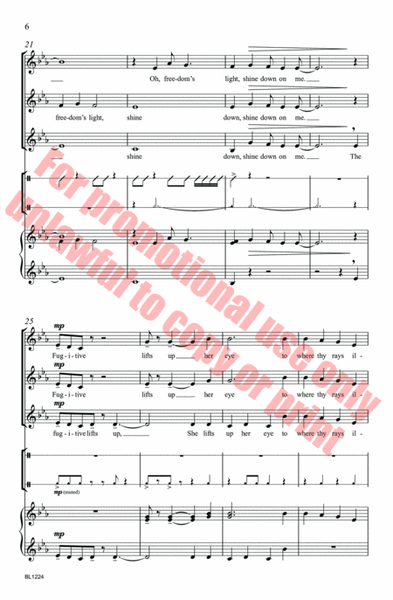
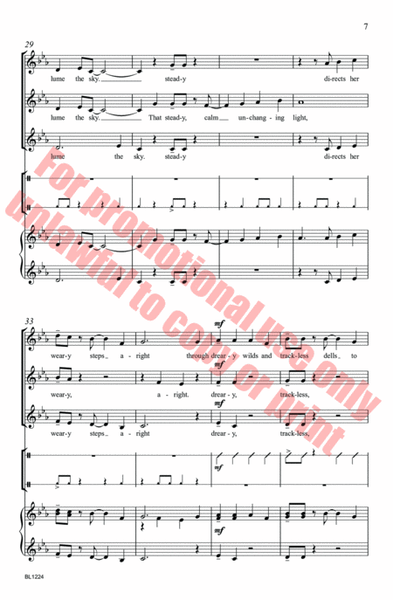
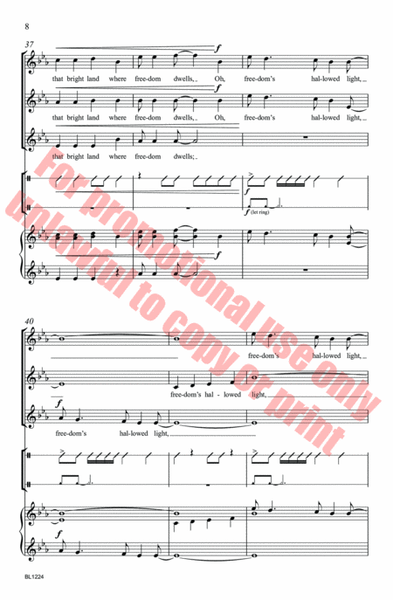
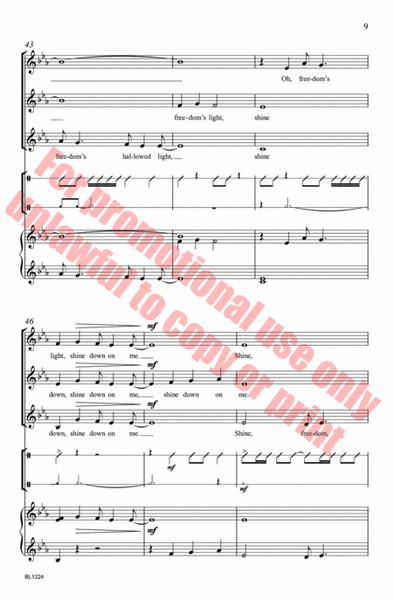
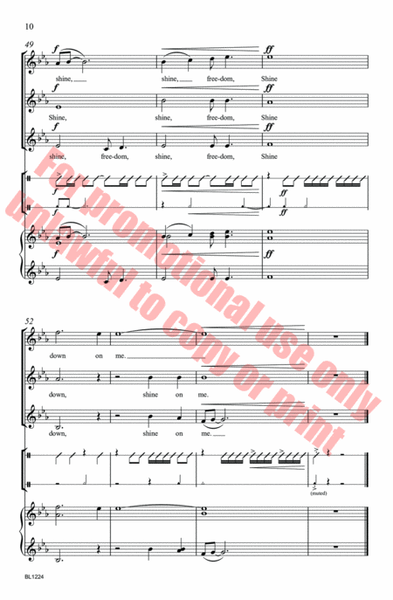
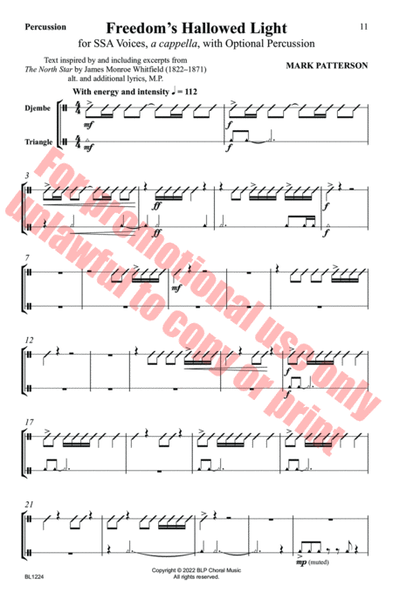
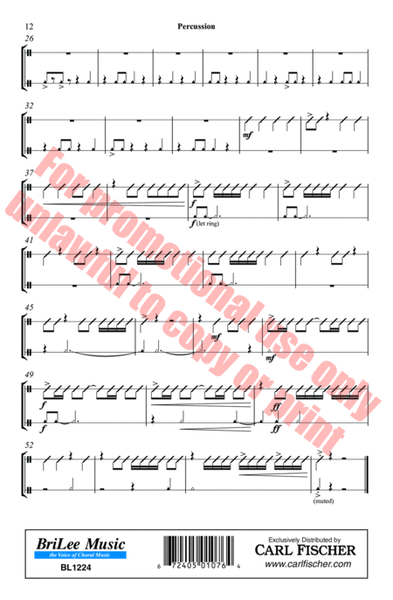
 Share
Share